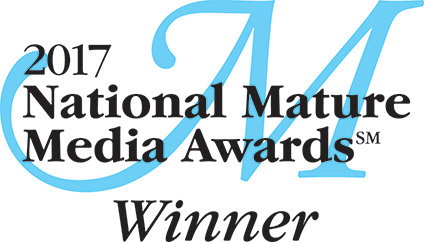Art is for everyone to enjoy but not everyone has access to art. And it is not just about wheelchairs. That can be accommodated with physical solutions such as ramps, elevators and entries. There are many individuals who need special accessibility for visual arts and the solutions to offer this experience necessitates planning by the provider. Fortunately, organizations nationwide support the inclusive art community.
The National Arts and Disability Center is a project at the University of California in Los Angeles whose “mission is to promote the full inclusion of audiences and artists with disabilities into all facets of the arts community”. It is a robust resource for artists, administrators, policy makers, grantmakers and everyone interested in this area of service. In addition to hundreds of helpful web pages, it offers networking and technology assistance for specialized groups.
Many museums offer unique programs to encourage the less able bodied to view their collections. These programs are designed to provide an intellectual understanding of a visual experience that will encourage the participant to think about art and his/her world. Often they will learn about the hurdles that artists have met and how they persevered to continue making art. In addition, an important auxiliary aspect of these programs is socialization. These participants usually lead isolated lives and in a program they become part of a group, have the opportunity to talk with others and interact with museum professionals who encourage questions and responses. For many, this experience will continue to resonate and provide fodder for conversation and further reflection.
In 2006, The Museum of Modern Art (MOMA) in New York City, with support from the MetLife Foundation, established the program Meet Me at MOMA which is held monthly and is free of charge. Designed to provide interactive guided tours with dialogue and discussion for Alzheimer patients, their family members and caregivers, its success has been nothing less than remarkable. As part of the comprehensive project, MOMA developed accessibility models that can be utilized by other museums as well as care giving facilities nationwide. There is also a joint venture with the NYU School of Medicine to measure the positive impact of art and health care for early stage Alzheimer patients and their caregivers. To "share, educate and inspire", Dr. John Zeisel and Sean Caulfield arrange free museum tours at different art sites locally and globally through Artz, (Artists for Alzheimers) which is an initiative under the Hearthstone Alzheimer’s Foundation.
The Metropolitan Museum of Art provides a range of inclusive workshops and gallery tours including a specialized “Discoveries” program for visitors with learning and developmental disabilities from age 6 and up. This is a popular and free program held on Sundays offers art making time as well as guided tour based on the theme for that week.
Accessibility is an important aspect of the Philadelphia Museum of Art’s (PMA). mission to reach people with a range of disabilities including some people who may be unable to visit the museum At home and with the use of a basic phone line, participants who would not have physical access to the museum can participate in a free conference call to learn about art. This Art Talk service is facilitated by a trained Museum educator (docent) who references the pictorial booklet distributed prior to the call to discuss the art and encourage conversation. PMA also provides hands on workshops to legally blind adults combined with museum tours that provide visual descriptions with the opportunity to touch select objects . Laura Marmar, a PMA docent for the past 20 years, has guided accessible programs. She sees real needs in the community being met and the widening of art accessibility through specialized programs managed by PMA’s extraordinary outreach.
For additional information about art accessibility in your area, contact the museums and galleries directly. Many of these institutions are funded to provide this public service and welcome the opportunity to extend the art experience to individuals and groups in their community.
I am only one, but still I am one. I cannot do everything, but still I can do something; and because I cannot do everything, I will not refuse to do something that I can do.
-Helen Keller
Subscribe to:
Post Comments (Atom)







I had no idea there were so many options for those with differing needs! I'm going to check out if any museums in my area have specialized solutions.
ReplyDelete